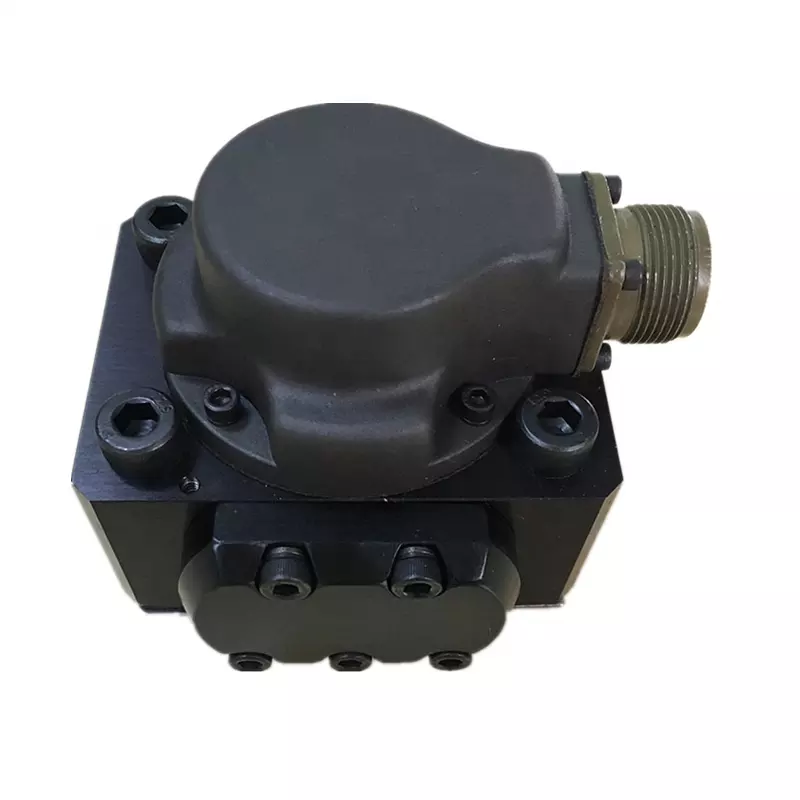language
English
العربية
বাংলাদেশ
Български
Hrvatski
Česky
Dansk
Nederland
 Esperanto
Esperanto
Slovenski
Filipino
Suomi
Français
Maori
 Shqiptare
Shqiptare
Georgian
 Euskara
Euskara
Deutsch
Ελλάδα
ישראל
इंडिया
Magyarország
Ísland
Indonesia
Irlanda
Italia
日本語
Sovensko
Հայաստան
한국
Kyrgyz
ປະເທດລາວ
 Zulu
Zulu
Latvian
Lithuanian
Luxembourgish
 Latinus
Latinus
Macedonian
Малайская
Maltese
Монгол улс
 Cymraeg
Cymraeg
ဗမာ
 தமிழ்
தமிழ்
नेपाल
Norge
ایران
Polska
Portugal
România
Российская
Србија
 Slovak
Slovak
Србија
 Slovak
Slovak
Bosanski
Slovenian
Беларус
España
Sverige
Точик
ประเทศไทย
Türk
Azərbaycan
Uzbek
 Afrikaans
Afrikaans
Việt Nam

NEWS
Has Now Developed Into An International Trading Company That Supplies Various Hydraulic Machinery Parts, Oil Pumps And Valves.
Understanding the SM4-20 Servo Valve: A Comprehensive Guide for Industrial Applications
Release Time:
2021-09-15
The SM4-20 servo valve is a critical component in the field of hydraulic systems, particularly in applications requiring precise control of fluid flow and pressure. Understanding its functionality and advantages is vital for professionals in the industrial equipment sector, especially those involved in hydraulic machinery and components. At its core, the SM4-20 servo valve operates on the principl
The SM4-20 servo valve is a critical component in the field of hydraulic systems, particularly in applications requiring precise control of fluid flow and pressure. Understanding its functionality and advantages is vital for professionals in the industrial equipment sector, especially those involved in hydraulic machinery and components.
At its core, the SM4-20 servo valve operates on the principle of converting electrical signals into hydraulic actions. This conversion is achieved through a feedback mechanism that ensures accurate positioning and response, making it an essential tool for applications where precision is paramount. Servo valves are known for their ability to modulate flow rates and control movements with high accuracy, which is crucial in manufacturing processes, robotics, and aerospace applications.
One of the key features of the SM4-20 servo valve is its ability to provide a high degree of responsiveness. This responsiveness is facilitated by its design, which incorporates advanced technologies that allow for rapid adjustments to variations in system demand. This characteristic is particularly beneficial in environments where quick reaction times are necessary to maintain operational efficiency and product quality.
Another notable advantage of the SM4-20 servo valve is its compatibility with various hydraulic fluids, making it versatile for different applications. This adaptability not only simplifies the integration process within existing systems but also enhances the overall reliability of hydraulic operations. Furthermore, the valve's construction typically includes robust materials that withstand harsh operating conditions, ensuring longevity and reduced maintenance costs.
Choosing the right servo valve, such as the SM4-20, also involves considering factors like flow capacity, pressure ratings, and installation requirements. Professionals should assess the specific needs of their hydraulic systems and determine how the characteristics of the SM4-20 align with those needs. The valve's ability to work efficiently in dynamic environments makes it a preferred choice for engineers and applications requiring continuous adjustments.
In conclusion, the SM4-20 servo valve stands out in the hydraulic machinery sector due to its precision, responsiveness, and adaptability. Understanding its operational mechanisms and advantages can empower industry professionals to make informed decisions that enhance system performance and reliability. By incorporating the SM4-20 into hydraulic systems, businesses can achieve significant improvements in efficiency and control, making it an invaluable asset in modern industrial applications.
At its core, the SM4-20 servo valve operates on the principle of converting electrical signals into hydraulic actions. This conversion is achieved through a feedback mechanism that ensures accurate positioning and response, making it an essential tool for applications where precision is paramount. Servo valves are known for their ability to modulate flow rates and control movements with high accuracy, which is crucial in manufacturing processes, robotics, and aerospace applications.
One of the key features of the SM4-20 servo valve is its ability to provide a high degree of responsiveness. This responsiveness is facilitated by its design, which incorporates advanced technologies that allow for rapid adjustments to variations in system demand. This characteristic is particularly beneficial in environments where quick reaction times are necessary to maintain operational efficiency and product quality.
Another notable advantage of the SM4-20 servo valve is its compatibility with various hydraulic fluids, making it versatile for different applications. This adaptability not only simplifies the integration process within existing systems but also enhances the overall reliability of hydraulic operations. Furthermore, the valve's construction typically includes robust materials that withstand harsh operating conditions, ensuring longevity and reduced maintenance costs.
Choosing the right servo valve, such as the SM4-20, also involves considering factors like flow capacity, pressure ratings, and installation requirements. Professionals should assess the specific needs of their hydraulic systems and determine how the characteristics of the SM4-20 align with those needs. The valve's ability to work efficiently in dynamic environments makes it a preferred choice for engineers and applications requiring continuous adjustments.
In conclusion, the SM4-20 servo valve stands out in the hydraulic machinery sector due to its precision, responsiveness, and adaptability. Understanding its operational mechanisms and advantages can empower industry professionals to make informed decisions that enhance system performance and reliability. By incorporating the SM4-20 into hydraulic systems, businesses can achieve significant improvements in efficiency and control, making it an invaluable asset in modern industrial applications.
Related News
undefined
Contact Us
Quanzhou Nuoyi Hydraulic Technology Co., Ltd.
Hotline:+86-18876238072
Add: Room 1915, Building 1, No. 2205, Jiangbin South Road, Licheng Dist., Quanzhou, Fujian, China
Email: vanepump@fjzhenyuan.com

